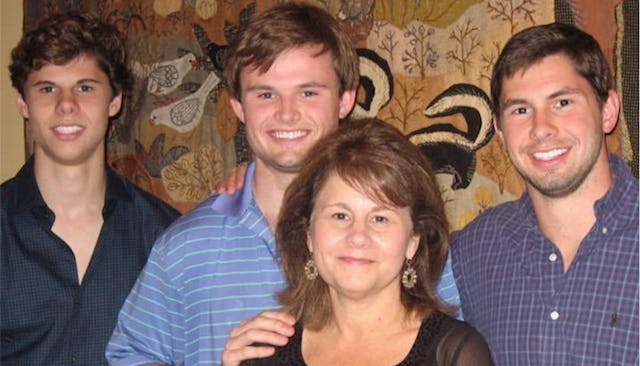Man Pens Heartbreaking Post About Bullies After Losing Teen Brother To Suicide

This man’s Facebook post about the bullying that caused his brother’s suicide is going viral.
A Texas family is grieving the loss of a their high schooler this week after they say he took his own life because of relentless and cruel bullying from fellow students. 16-year-old David Molak was a sophomore at Alamo Heights High School in San Antonio, Texas, and he was found dead of an apparent suicide on Monday morning.
Since then, David’s brother, Cliff, has opened up about the vicious bullying David endured. He told KSAT that bullies crushed David’s spirit and his brother just “didn’t know how to handle” the constant abuse. He even wrote a lengthy Facebook post highlighting the issue of cyberbullying and calling for “the healing of this nation to be David’s legacy.”
In the post, Molak says his brother’s death was a tragedy “set into motion by a boy whom I will not further empower by naming.” He says he wants to open our eyes to the bullying that happens each and every day in our own communities, and then he describes his brother’s final day in heartbreaking detail. He writes:
“I saw the pain in David’s eyes three nights ago as he was added to a group text only to be made fun of and kicked out two minutes later. I spoke to him right after to comfort him and he didn’t even hear me. He stared off into the distance for what seemed like an hour. I could feel his pain. It was a tangible pain. He didn’t even have the contact information of any of the eight members who started the group text. It is important to note David had been enduring this sort of abuse for a very long time.”
The rest of Molak’s post is a stunning and crucial reminder that technology has only aided bullies in their quest to do harm, and that each of us is responsible for eliminating the problem. “In today’s age, bullies don’t push you into lockers, they don’t tell their victims to meet them behind the school’s dumpster after class,” he says. “They cower behind user names and fake profiles from miles away constantly berating and abusing good, innocent people.”
He concludes that ultimately “household and school systems are failing” in addressing the problem of cyberbullying, and the only way we’ll ever solve the problem is if we start holding people accountable for their actions. He’s not wrong, and the issue of bullying only gets more troubling when you start looking into statistics.
According to a poll by the National Crime Prevention Council, 43 percent of kids ages 11-17 report being cyberbullied within the past year, and one in four of those kids say it’s happened to them more than once. Suicide is the second leading cause of death for kids ages 15-18, and kids who’ve been bullied are up to nine times likelier to consider taking their own lives. Bullying claims lives every day, and we’re simply not doing enough to put a stop to it.
What the Molak family is going through right now is tragic and terrible, and it’s almost impossible imagine the amount of pain they must be feeling. Anyone who’s ever been bullied can identify with the heartbreak and hopelessness David experienced, and no child should ever have to feel that way. David’s death is a loss for us all, and a devastating reminder that we need to work harder to put an end to bullying for good.